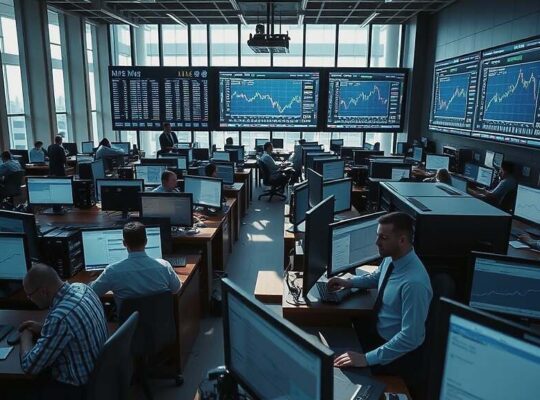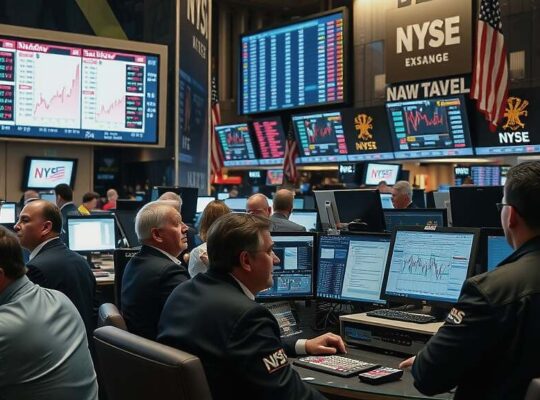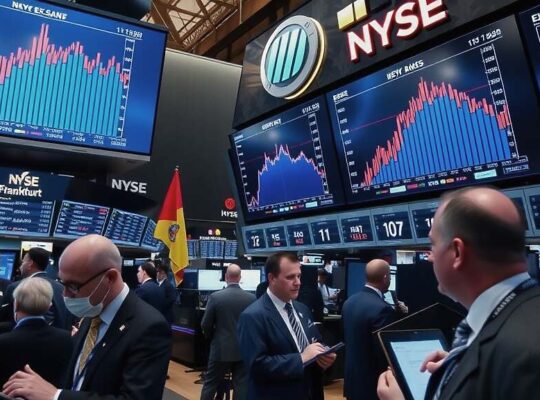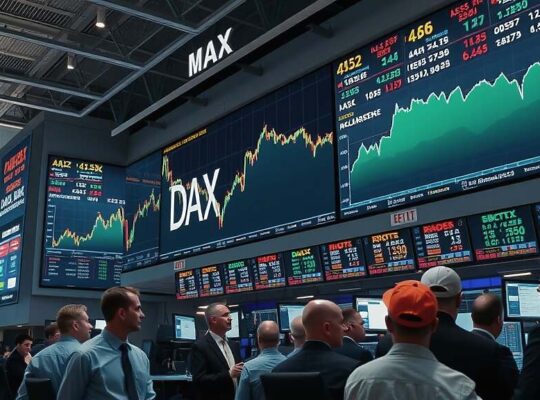The German stock market benchmark, the DAX, saw a decline on Friday, closing at 23,787 points, representing a 0.6% decrease from Thursday’s closing value. After a subdued opening, the index extended its losses throughout the morning session.
Market analyst Andreas Lipkow attributed the movement to investors adjusting positions in anticipation of the weekend and the upcoming trading week. He noted a prevailing sense of caution, with market participants largely awaiting developments regarding potential tariffs. The wide range of possible outcomes makes it difficult to reliably assess the potential economic impact on various regions.
Lipkow suggested that a compromise, likely affecting the automotive sector, is currently the most probable scenario. However, he emphasized that whether investors have already fully factored this into valuations remains to be seen and will become clearer in the coming trading week once concrete details emerge.
Throughout the trading day, shares of Rheinmetall and E-On led the performance on the Frankfurt Stock Exchange, while Siemens shares experienced the largest depreciation.
Beyond equities, natural gas prices also retreated, with August delivery contracts falling to €33 per megawatt-hour (MWh), a 1% decrease from the previous day. This price level, if sustained, would translate to consumer prices of at least 8 to 10 cents per kilowatt-hour (kWh), inclusive of ancillary costs and taxes.
Crude oil prices followed suit, with a barrel of Brent North Sea crude trading at $68.42, down 38 cents or 0.6% from the previous day’s close.
The euro strengthened slightly against the US dollar, reaching $1.1781, with a dollar now worth €0.8488.












